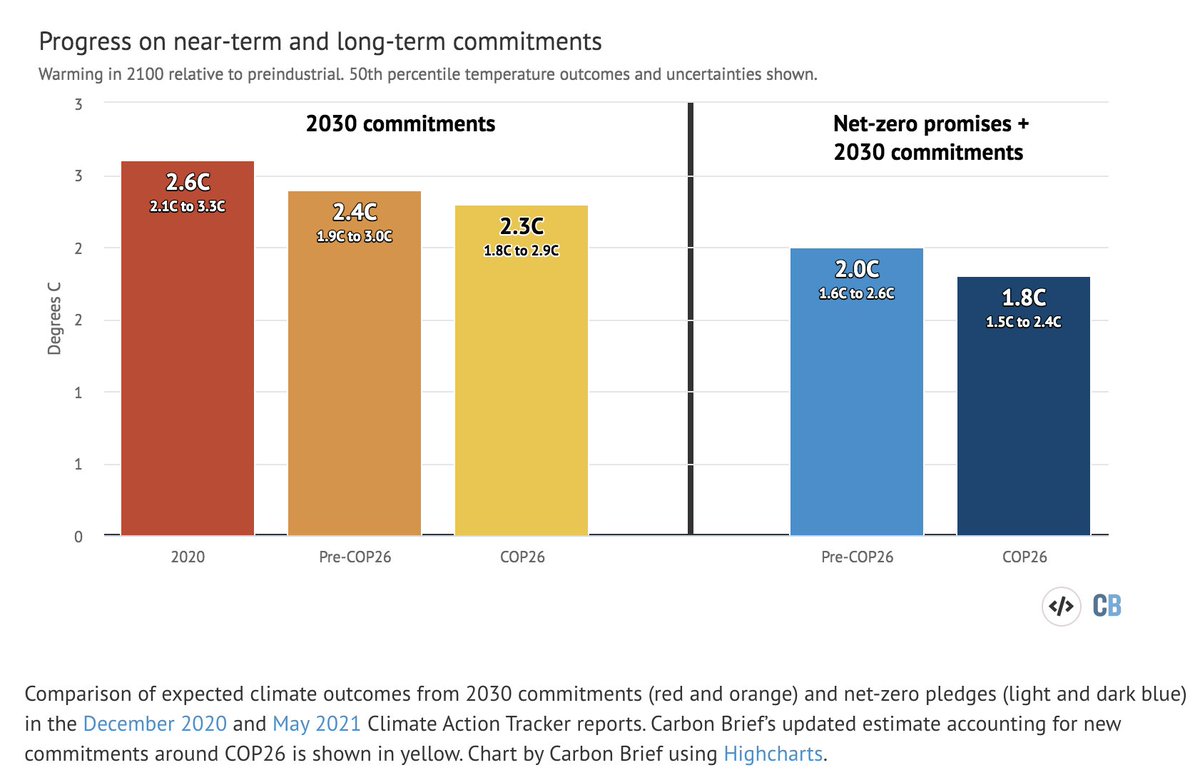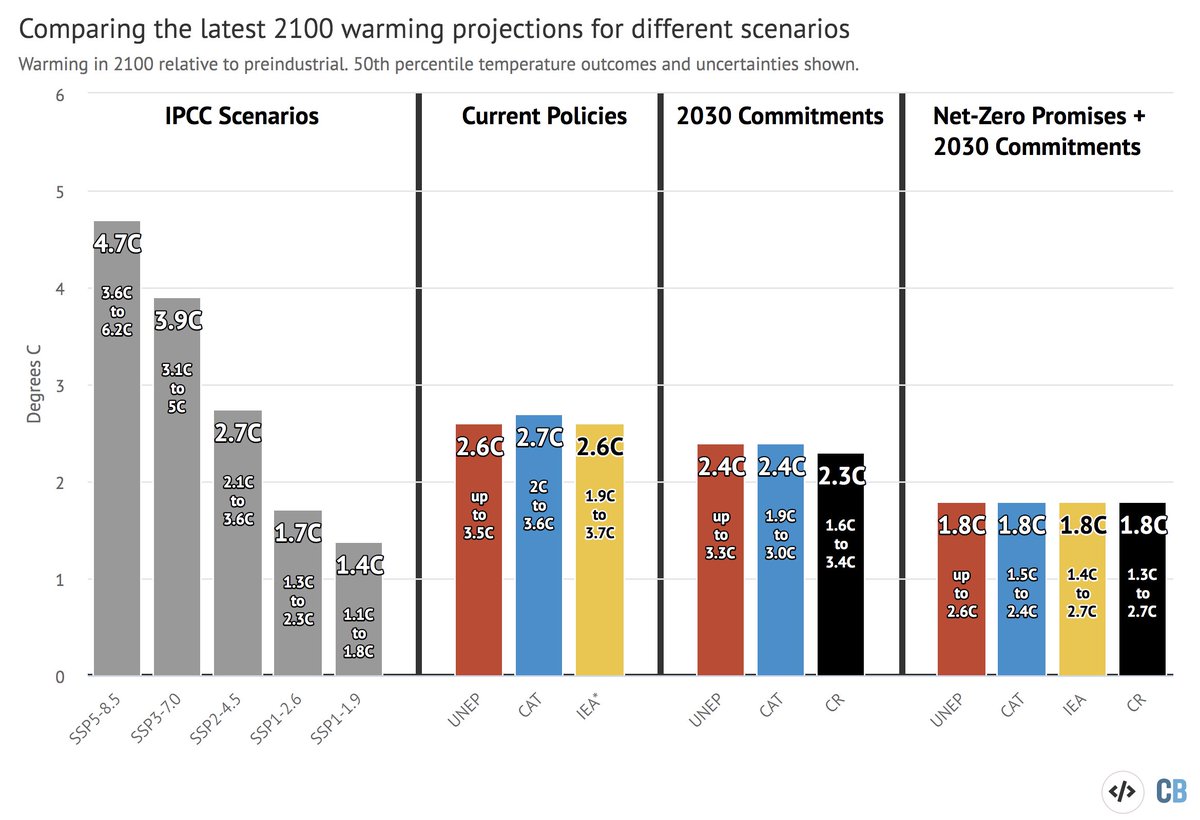
COP26 will not – by itself – put the world on track to meet Paris Agreement goals. But it does meaningfully move the needle. Commitments in the lead-up to COP26 likely reduced global temperatures by 0.2C and commitments during the conference by another ~0.1C.
Every 0.1C matters!
Every 0.1C matters!

While long-term net-zero promises are encouraging, talk is cheap, and pledges around outcomes 30 to 50 years in the future are only meaningful if reflected in near-term commitments. The task as COP26 draws to a close is to ratchet these up to put us on a path to net-zero.
For more details, see the piece by @piersforster and I earlier this week over at @CarbonBrief on climate outcomes of COP26: carbonbrief.org/analysis-do-co…
To be clear, these commitments may reduce temperatures by that much if achieved. Many countries are not on track to meet their NDCs today, some NDCs are conditional on other actions by countries, etc. Setting aside net-zero commitments, even 2030 commitments are not guaranteed.
• • •
Missing some Tweet in this thread? You can try to
force a refresh









